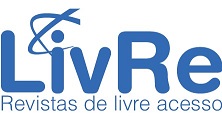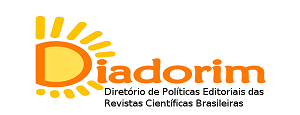To what extent does School Geography contribute to citizen education?
DOI:
https://doi.org/10.20873/rtg.v11i24.14822Keywords:
Teaching Geography, Citizenship Training, Curricular RegulationsAbstract
The role of Human Sciences, as an area that contributes to citizen education, is present in the National Common Curricular Base (BNCC), approved in 2017, which points out that it is necessary to understand, interpret and evaluate the meanings of past, present and future human actions. future so that the student understands that he is part of a certain historical circumstance, and, therefore, becomes aware and responsible. Based on these guidelines, which involve School Geography, we ask ourselves the following question: to what extent does School Geography contribute to citizen formation? To bring light to this question and others within this context, this text presents some questions in order to reflect on the citizenship education of students through the Teaching of Geography. Through a bibliographic review, we initially discussed the meaning of citizen education and its relationship with the Teaching of Geography. Next, we will briefly present the context of this theme in Brazil and in the European Union, specifically in Italy. At this point, our objective is to understand how such a discussion is inserted in another context. Finally, we seek to point out some considerations, in addition to the common ones, about citizen education.
References
ALMEIDA, Cecília Cardoso Teixeira de; MARTINS, Elvio Rodrigues; SILVA, Jorge Luiz Barcellos da. A CIÊNCIA GEOGRÁFICA E O ENSINO DE GEOGRAFIA DOS ANOS 1980 AOS DIAS DE HOJE: uma avaliação. Revista Brasileira de Educação em Geografia, [S.L.], v. 9, n. 18, p. 05-19, 17 jun. 2020. Disponível em: https://www.revistaedugeo.com.br/revistaedugeo/article/view/747. Acesso em: 12 maio 2022.
BRASIL. Ministério da Educação. Base Nacional Comum Curricular. Versão Final. Brasília: MEC, 2018. Disponível em: http://basenacionalcomum.mec.gov.br/. Acesso em: 26 jun. 2020.
CALLAI, Helena Copetti. Educação geográfica para a formação cidadã. Revista de Geografía Norte Grande, [S.L.], n. 70, p. 9-30, set. 2018. Disponível em: https://www.scielo.cl/scielo.php?script=sci_arttext&pid=S0718-34022018000200009. Acesso em: 02 mar. 2021.
CALLAI, Helena Copetti. O ensino da Geografia e a nova realidade. Boletim Gaúcho de Geografia, Porto Alegre, n.24, p. 67-72, maio, 1998. Disponível em: http://seer.ufrgs.br. bgg/article/view/38900/26307. Acesso em: 03 jan. 2021
CAVALCANTI, Lana de Souza. Pensar pela Geografia: ensino e relevância social. Goiânia: Alfa, 2019. 232 p.
DE VECCHIS, Gino de. Didattica della Geografia: teoria e prassi. Novara: De Agostini, 2011. 237 p.
GIORDA, Cristiano. Il mio spazio nel mondo. Roma: Carocci, 2014. 206 p.
LLANCAVIL, Daniel Llancavil; QUITULEF, Hernán González. Pensamiento geográfico y educación ciudadana en Chile. Una mirada desde la educación geográfica. Didacticae: Revista de Investigación en Didácticas Específicas, [S.L.], n. 9, p. 25-38, 26 mar. 2021. Disponível em: https://revistes.ub.edu/index.php/didacticae/article/view/32448. Acesso em: 28 ago. 2022.
SANTOS, Milton. POR UMA GEOGRAFIA CIDADÃ: POR UMA ESPITEMOLOGIA DA EXISTÊNCIA. Boletim Gaúcho de Geografia, n. 21: 7-14, ago., 1996. Disponível em: http://seer.ufrgs.br/bgg/article/view/38613/26350. Acesso em 10 de jan.2022.
PEZZATO, João Pedro. GEOGRAFIA ESCOLAR NO BRASIL: uma trajetória com mudanças culturais e a permanência do discurso em prol da cidadania. Estudos Geográficos: Revista Eletrônica de Geografia, [S.L.], v. 16, n. 1, p. 241-267, 14 set. 2018. Disponível em: https://www.periodicos.rc.biblioteca.unesp.br/index.php/estgeo/article/view/13359. Acesso em: 20 abr. 2022.
ROCCA, Lorena. Geo-scoprire il mondo. Lecce: La Biblioteca Pensa Multimedia, 2007. 330 p.
ROQUE ASCENÇÃO, Valéria de Oliveira. A Base Nacional Comum Curricular e a produção de práticas pedagógicas para a geografia escolar. Revista Brasileira de Educação em Geografia, [S.L.], v. 10, n. 19, p. 173-197, 24 jul. 2020. Disponível em: https://www.revistaedugeo.com.br/revistaedugeo/article/view/915. Acesso em: 02 mar. 2021.
Downloads
Published
How to Cite
Issue
Section
License
Copyright (c) 2022 Tocantinense Journal of Geography

This work is licensed under a Creative Commons Attribution-NonCommercial-NoDerivatives 4.0 International License.
Revista Tocantinense de Geografia does not remunerate any author for the publication of their texts. The contents of the texts published in this journal are the responsibility of the authors.








.png)












